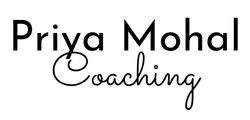The balance between being respectful and speaking your mind can be a precarious one for South Asian women. The reasons that still many South Asian women feel that they are not assertive enough are complex and due to many factors in how we are raised, the role models we have seen and our personality styles.
I used to feel disheartened when people told me I needed to be more assertive. They didn’t know my background and how I was raised like many South Asian women, to listen and do what we are told because that is how ‘good girls’ behave. Even if we wanted to make choices as a teen or young adult, we often had to ask permission before proceeding. Part of this is out of love and care of our parents, who wanted to ensure we were safe and part of it is from making sure we don’t do anything to damage the family reputation.
However, we all can work on our assertiveness and let go of previous behaviours and thinking styles that no longer serve us. I would encourage everyone to reflect and understand their relationship with speaking their minds or advocating for themselves. Ask yourself in which situations does speaking your mind become difficult or uncomfortable?
The Career Impact
In a professional setting, where people value your talent and education, it becomes essential to voice your opinions, to ensure you can set boundaries and feel confident in speaking up.
This can also support you with:
- Developing your career and standing out.
- Negotiating for what you require and deserve.
- Expressing yourself authentically.
If we don’t learn these skills, South Asian women risk being undervalued and overlooked for pay raises and promotions, something which already commonly occurs (as highlighted in ‘Race In The Workplace‘).
From my personal experience, when I first started working, I was fearful of speaking in large meetings, especially when I was the only female and woman of colour. I used to think that nobody would be interested in my opinions, but I had a great manager who made me feel valued and he helped me prepare and to focus on my opinions on various topics so I was soon leading client meetings.
Here are 3 tips I used to build assertiveness, but there are a lot more in the Transform Your Communication workbook on my website if you are interested in this area!
- Develop self-awareness:
- Understand your communication style, strengths, and areas for improvement. This can then support you in your interactions, knowing when you may need to prepare more or change your communication style when working with different people. Contact me for more information on this.
- Reflect on your beliefs, values, and goals, which will help you establish a firm foundation for assertive behaviour, think about why it would be beneficial to advocate for yourself and the impact it would make in your life. Keep this in mind when you are unsure about how or whether to speak up for yourself.
2. Use confident body language:
- Body language plays a crucial role in assertiveness. Maintain good posture, make eye contact, and use appropriate gestures. Project confidence through your nonverbal cues, as they can influence how your assertiveness is perceived.
- Watch ‘Amy Cuddy’ on YouTube, she has a video about body language and confidence for some great short-term hacks to use before a meeting or interview. In the long-term, I believe you can cultivate confidence by working on your mindset and focussing on your strengths.
3. Practice assertive communication techniques:
- Develop clear and direct communication skills.
- Use “I” statements to express your thoughts, feelings, and needs, focusing on specific behaviours or situations rather than making generalisations.
- Be concise and avoid apologising excessively for expressing yourself. You are entitled to express your opinion as much as anyone else.
Using self-reflection and a desire to change how you want to communicate and be perceived takes time, it’s useful to think about it in your everyday interactions to build your skill in this area.
If you need more support, please reach out to me and download my Communication workbook for more tips.

